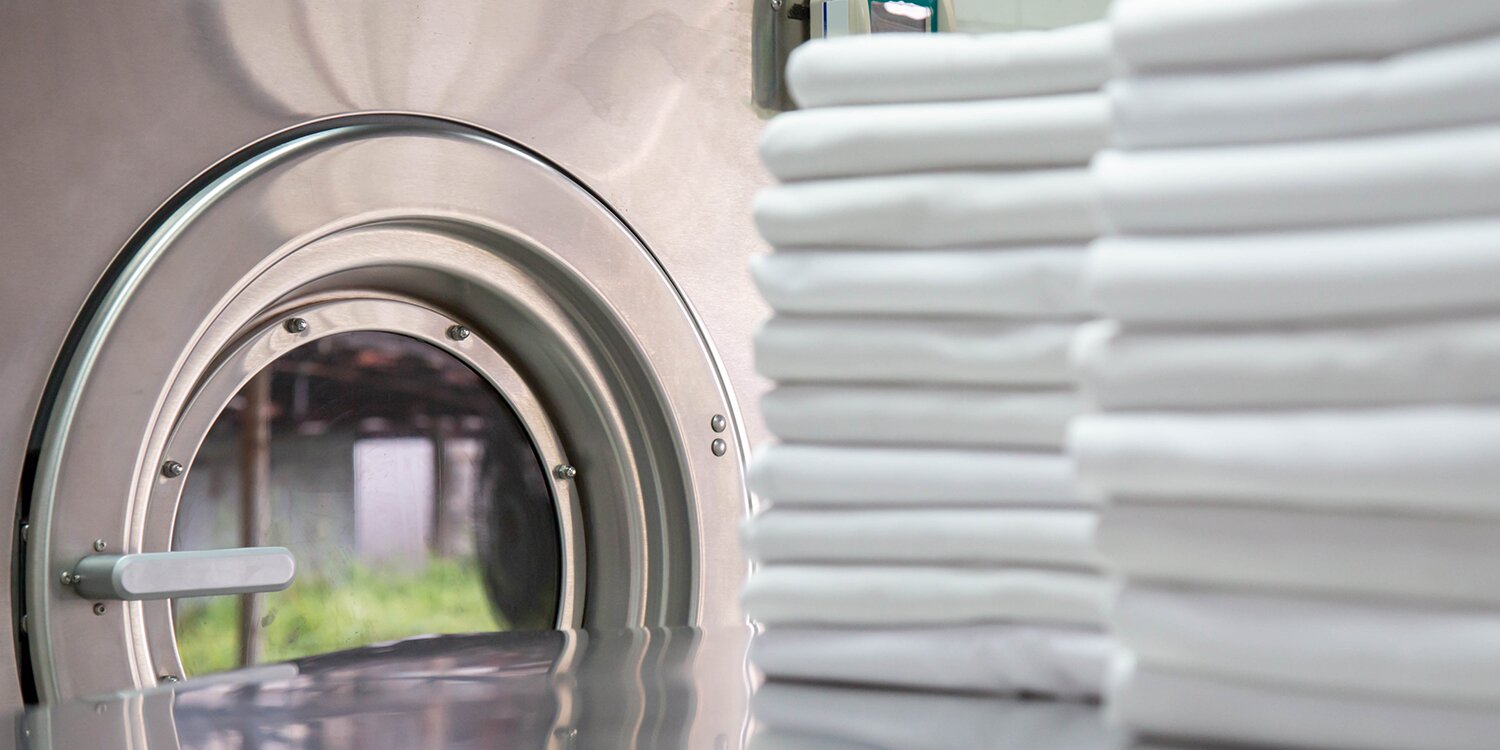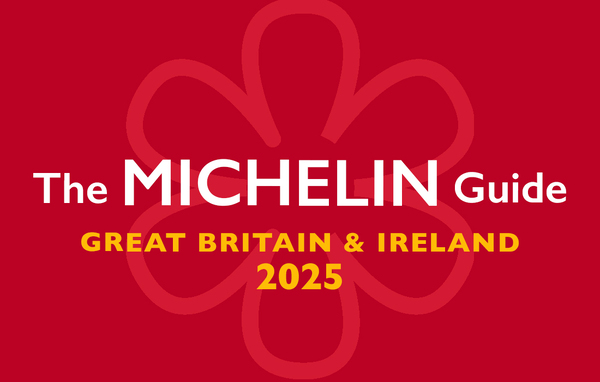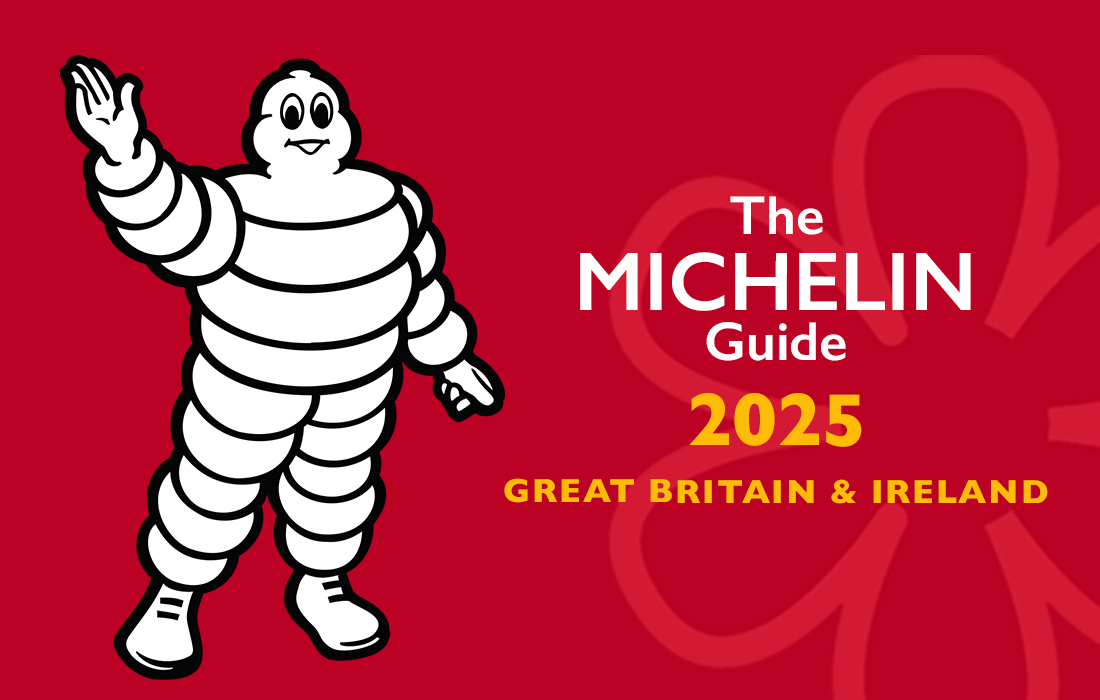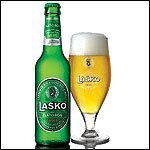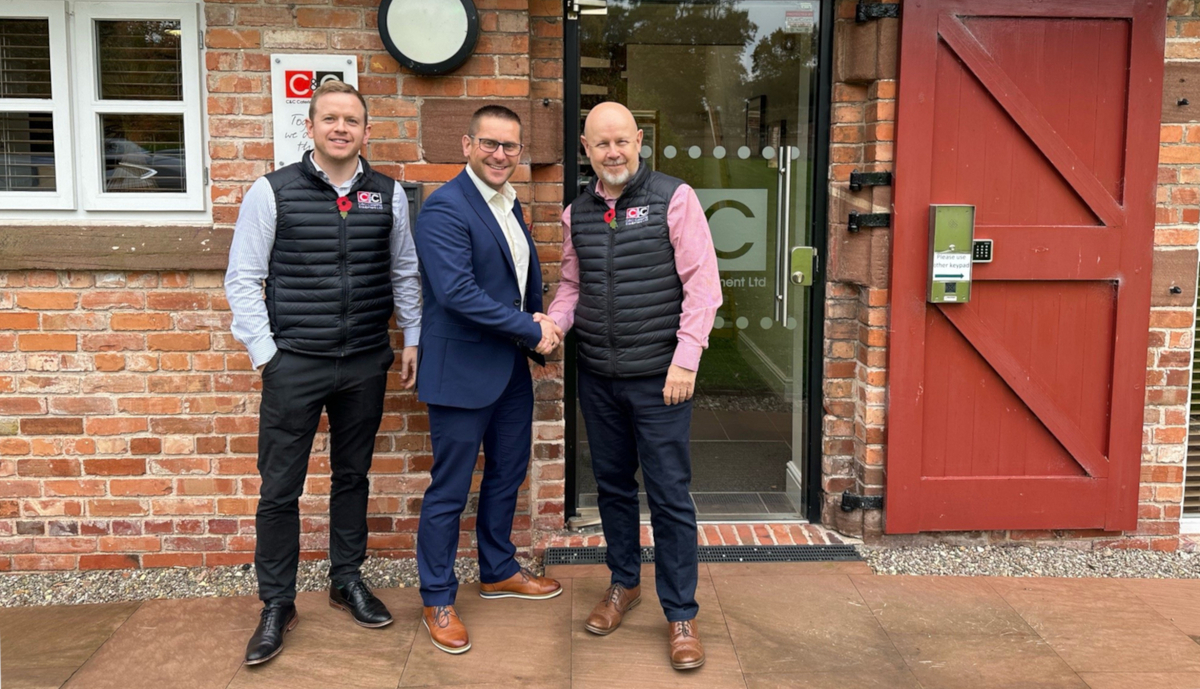Lighten your laundry load
Laundries offer cost savings in a variety of ways, from super-efficient machines to low-dosage chemicals. Angela Frewin reports
Cleanliness has always been a clincher for hospitality venues and their customers. However, according to Rick Shonfeld, director at workwear specialist Tibard, hygiene has “never been as important to consumers as it is now”.
Some 78% of hotel guests partaking in a 2018 study by the Institute of Hospitality said cleanliness was of paramount importance to them when choosing a venue, while new research from Citron Hygiene finds the coronavirus pandemic has left 67% of people more “afraid and conscious” of hygiene. On the provider side, spiralling prices have prompted hospitality operators and laundry services to focus on the urgent need to curb costs.
“To help reduce [energy] costs but keep exceeding customer expectations, businesses should use contemporary technology,” says Ian Yates, quality assurance manager at bed, bath, and table linen specialist Richard Haworth. “That could be chemicals that allow for washing at lower temperatures, or machines with technology that do not over-dry fabrics and require far less energy than older machines.”
“Features such as sensors on dryers help make sure products are finished without over-drying or damaging linens. Some laundries will have sensors that can automatically spot and remove any items with stains for rewashing, even when they’re at the folding stage. Some laundries now use folding machines for sheets and duvet covers instead of staff, to automate the laundering process even more, which reduces staff overheads.”
Guaranteed clean
Most hospitality operators opt for the convenience of outsourcing laundry to professional facilities that can reduce costs without compromising hygiene, through economies of scale, energy efficiencies and staff productivity.
“Hygiene is what commercial laundries sell, so delivering in line with customer expectations will always be a top priority for them. No laundry company will compromise on hygiene,” says David Stevens, chief executive of the Textiles Services Association (TSA) whose members offer a Rest Assured hygiene pledge developed with UKHospitality.
“Commercial laundries have precise controls of chemicals and temperatures and so are able to have a much greater range of ‘wash recipes’ to ensure textiles are hygienically clean using the most efficient programme.”
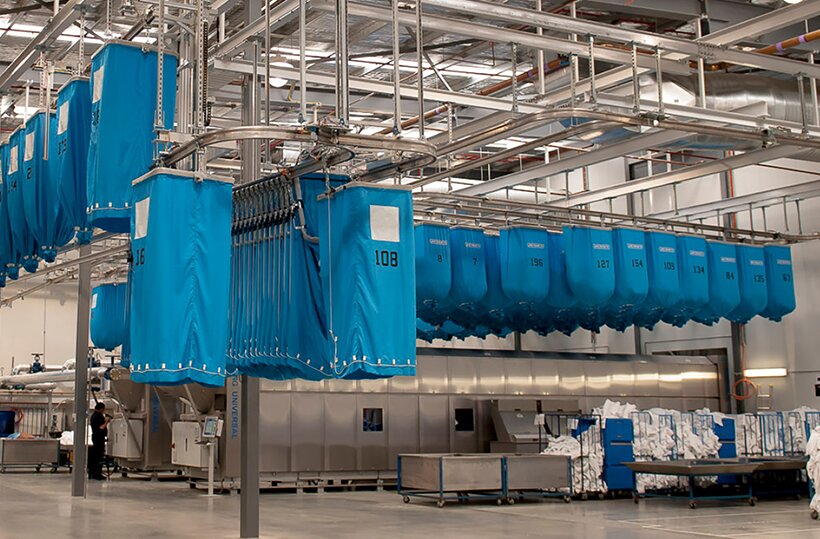
Tibard’s partner laundries, which include a workwear rental and laundry option, follow the stringent hygiene standards set for hospitals and care homes and can pass on savings from their investments in the latest energy-efficient and highly automated equipment, says Shonfeld.
They favour continuous batch or tunnel washers that use 70% less water than traditional washers and continuously recycle water and heat for optimum energy efficiency. “For example, excess water that is used for the spin cycle is then reused for the wetting process, and heat from the hot water is recycled to warm the cold water that is used on the final rinses,” Shonfeld explains.
Further energy savings come from the transition to new-generation direct water heating systems that offer gross thermal efficiencies up to 98%, compared with 88% for the older indirect systems.
“In terms of outsourcing linens to a laundry or cleaning on site, no doubt over a long period of time taking this function in-house will save money,” says Yates. “However, purchasing the machinery, hiring and retaining staff and finding space to store products can be a headache and a risk that most hotels don’t want to take right now given the up-front expense.
Renting laundry provides flexibility and helps cash flow, which can be particularly helpful during the current cost of living crisis.”
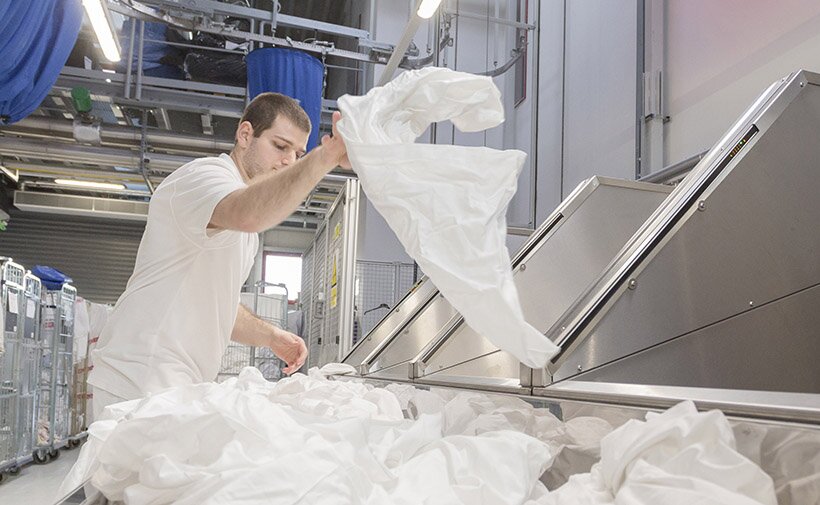
“Electrolux Professional has estimated that the up-front cost of washers and dryers make up only 10% of the overall investment – with life cycle costs making up the other 90%,” says training and demonstration manager Stuart Flint. “Equipment which keeps costs down therefore further strengthens the case for keeping laundry practices on-site.”
Its connectivity-ready Line 6000 range of washers, dryers and ironers incorporate savings features that optimise performance and productivity while slashing running costs by 60% (dryers) and 40% (washers). Dryers can process a 16kg load in just 42 minutes,which is claimed to be the shortest drying time on the market, while washers automatically match water volume with load weight and dole out the precise amounts of detergent, softener and chemicals needed.
Girbau UK, a leader in the installation and maintenance of laundries, has many hotel customers, large and small, and managing director Peter Rankin is seeing a growing trend towards the insourcing of laundry across the board. He attributes this to a growing desire for greater control of linen quality, stocks and availability, as well as energy and cost saving.
The group, which boasts the most comprehensive range of commercial, industrial and vended laundry products in the world, has built a host of energy-saving features into its new generation of GS7 Genius internet-enabled smart washers. They include an optional integral weighing system that measures each load and automatically adjusts programmes to optimise cycle time and lower water and chemical usage.
“These machines are already proving to be substantially more energy efficient than other commercial machines, while the Sapphire software makes it easy for users to track and fine-tune operation for even greater efficiency,” says Rankin.
Genius washers reduce energy consumption by up to 15%, with the Genius GS7018 using 2.5 kWh for a full 18kg load cycle against 3.5kWh for comparable models to save £1,460 a year (based on an eight-cycles-a-day usage). A spin speed of 450G (claimed to be the fastest on the market) cuts drying time by at least 10% and drying energy consumption by 30%.
Gently does it
“Hospitality owners should choose commercial laundry and cleaning solutions that can save money and conserve energy without ever compromising on results,” says Berat Onur, cluster sales lead UK and Ireland at P+G Professional. Onur adds that many also need high-performance chemicals that lift stains but are also comfortable for guests with sensitive skin.
Ariel Professional is formulated to work well at colder temperatures which can, says Onur, save up to 40% on washing costs. It also uses a patented PH neutral technology while the ‘sensitive’ version of the new floral fragranced Lenor Professional fabric conditioner is dermatologically tested to prevent skin irritation.
Belgian manufacturer of cleaning and disinfection products Christeyns has an EPIC (Enzymatic Process Innovation by Christeyns) solution to the growing water challenges faced by industrial laundries, that reduces wastewater costs by 25% and helps meet ever-stricter discharge standards.
EPIC uses low doses of stain-targeting biological enzymes to supplement the cleaning surfactants in detergents that pollute wastewater. It reduces surfactants by 50%, wastewater load by 20%-30% and detergent use to less than 0.9g per kilogram of hotel linen (against a standard two to four grams).
“It is not a standard all-in-one detergent,” explains Olivier Mareau, application manager and EPIC project manager. “EPIC is a flexible detergent system in which the enzyme mixtures are created and dosed according to the stain. These unique mixtures are dosed in the washing process separately from an adapted, enzyme-compatible detergent.” Mixtures are dosed from 0.05g per kilogram of textile by a unit at the customer’s premises.
Operators also need to invest in people to wring the most value from their equipment, says Debbie Jones, sales director at Washco. “While innovation is driving continuous improvements in the world of laundry, the efficiency and overall effectiveness of the process still very much relies, in part, on the user themselves and how well machines are maintained.”
Misuse and mishandling of linen can also be a people issue. Laundries can now apply for certification to the new Infinite Textiles scheme, devised by the TSA and UKHospitality, to improve the training of laundry and housekeeping staff in maximising linen life.
While the past two years have been brutal to the entire supply line, Stevens sees signs of light at the end of the tunnel. “The good news is that current laundry volumes indicate that there is a recovery in the hospitality sector, although the food and beverage side has probably had, and still does face, the biggest challenge,” he says.
Fair exchange
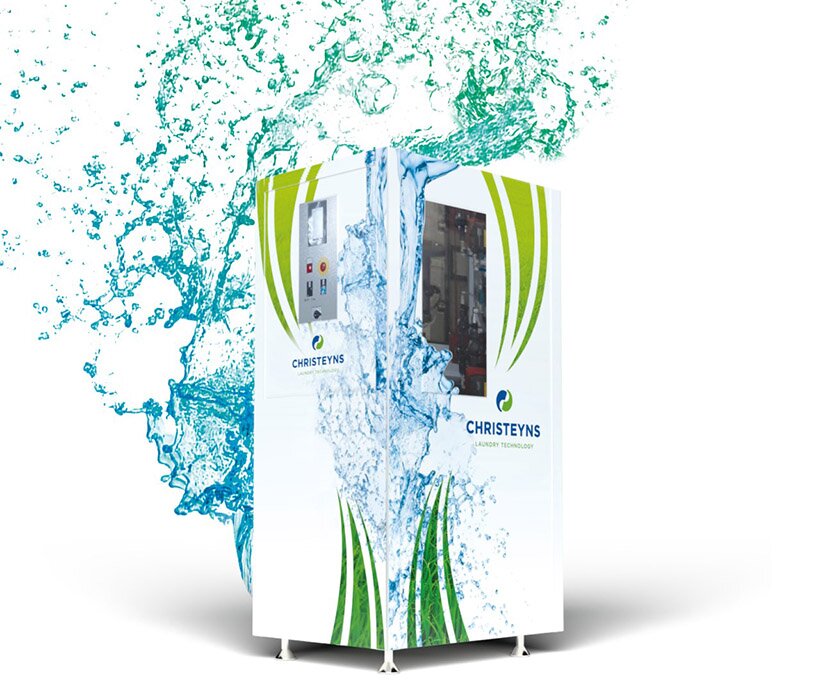
Christeyns’ Heat X Air technology has helped Swiss Camplings commercial laundry in Great Yarmouth in Norfolk reduce its energy consumption by 948,955kWh a year by transferring free energy from the ironers to heat up incoming fresh water for the washing process.
The heat exhaust recovery technology can reclaim up to 35% (or 100kWh) of ironer input energy, explains Christeyns water and energy engineer Dan Bircham. It uses this to heat fresh water to between 450C and 600C whilst cooling the extract air for removal as condensate.
“We have worked closely in partnership with Christeyns on energy reduction from the beginning of our new factory’s journey,” comments Swiss Camplings manager Richard Turvill. “Our approach has been to take a long-term view of return on investment; but by reducing our energy bill by over 10%, we are both moving towards our ambition of zero-carbon washing and achieving a sensible return,” says Swiss Camplings manager Richard Turvill.
Well connected
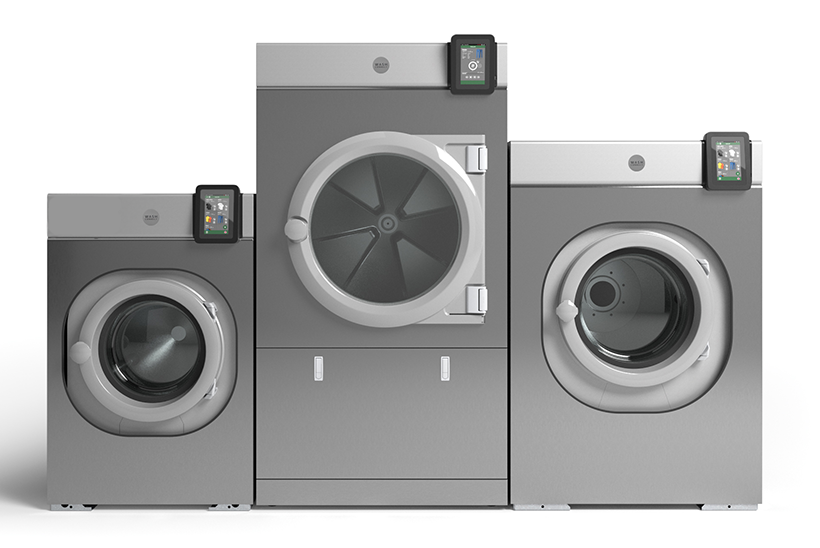
Arora Group has installed WashCo’s cloud connected WashConnect line of commercial washers and dryers in its new Fairmont Windsor Park hotel, after achieving improved performance and efficiency with the equipment at many of its sites. WashConnect was, says Jones, “an industry-first range of smart laundry equipment” with a wide choice of customisable programmes that can be monitored and modified remotely by hotel staff and the WashCo tech team.
“One of the standout features of the washing machines is the patented Dynamic Weighing System, which only uses the required levels of energy, water and detergent in line with the amount of laundry in the cycle,” explains Jones. “Because of this, Fairmont Windsor Park can use their large washing machines to run both small and more substantial loads, without wastage.”
The highly insulated dryers use a dynamic system that adjusts heat and time parameters to save up to 12 minutes per cycle (equivalent to two to four extra cycles over eight hours).
Suppliers
Christeyns www.christeyns.com/uk-en
Electrolux www.electroluxprofessional.com/gb/line-6000-solutions
Girbau UK www.girbau.com
P+G Professional pgpro.co.uk/en-gb
Richard Haworth www.richardhaworth.co.uk
Tibard www.tibard.co.uk
TSA (Textiles Services Association) www.tsa-uk.org
WashCo www.washco.co.uk



